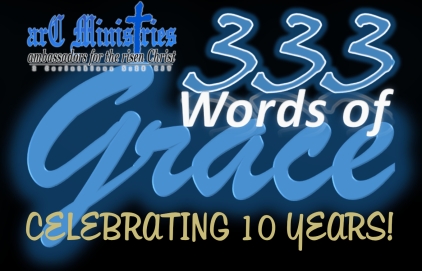Sunday, April 7, 2013
“For our light affliction, which is but for a moment, worketh for us a far more exceeding and eternal weight of glory;” (2 Corinthians 4:17 KJV).
A brief, light annoyance—an everlasting, much heavier weight of praise and worship….
While difficult circumstances are not enjoyable, they can be learning opportunities. Even the Apostle Paul needed spiritual growth. He finally learned how to change his outlook on suffering: “Not that I speak in respect of want: for I have learned, in whatsoever state I am, therewith to be content. I know both how to be abased, and I know how to abound: every where and in all things I am instructed both to be full and to be hungry, both to abound and to suffer need. I can do all things through Christ which strengtheneth me” (Philippians 4:11-13).
The “treasure in earthen vessels” of 2 Corinthians 4:7, the “power of Christ” of 2 Corinthians 12:9, and the “inward man being renewed day by day” of 2 Corinthians 4:16, are summarized in Philippians 4:13—“Christ which strengtheneth me.” Hence, Paul wrote, “for when I am weak, then am I strong” (2 Corinthians 12:10).
God’s abundant grace (2 Corinthians 12:9) enabled Paul and Timothy to endure suffering in order to minister to these Corinthian believers: “For all things are for your sakes, that the abundant grace might through the thanksgiving of many redound to the glory of God” (2 Corinthians 4:15). God strengthened them, which caused other believers to be thankful to God for giving Paul and Timothy provisions in Christ that got them through their difficult circumstances.
The spiritual fortitude and spiritual growth that resulted in these believers helped them to better understand how to deal with their own troubles, and it stored in their inner man the capacity to eternally function one day in the heavenly places for God’s glory. Therefore, this doxology—this praise to God—is not only here and now, but literally “a far more exceeding and eternal weight of glory” (today’s Scripture).
Remember, the issue is not the vessels—our frail, perishing physical bodies—but rather the treasure—the life of Jesus Christ—they contain. A doxology indeed! 🙂

